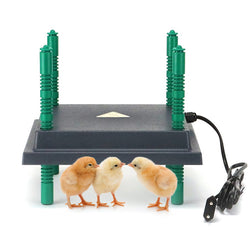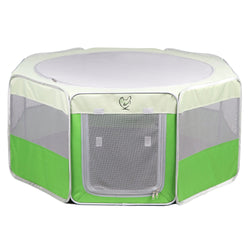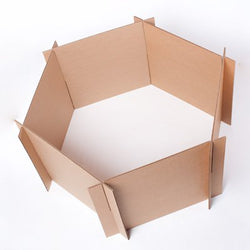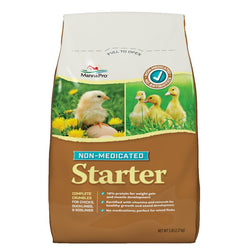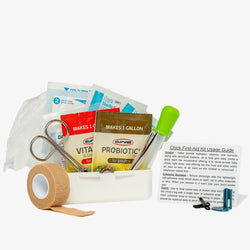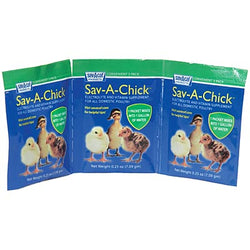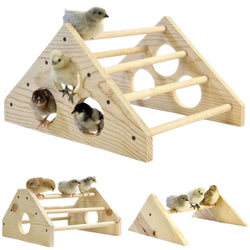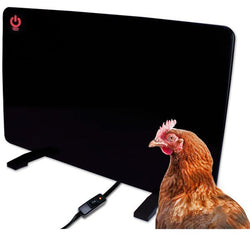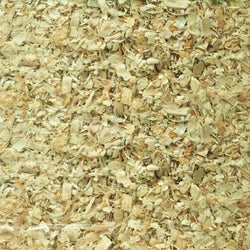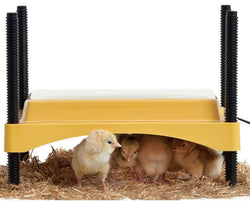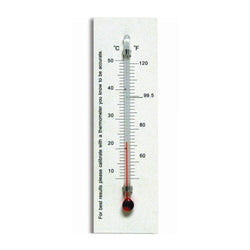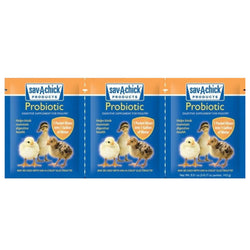Can baby chicks get too much chick grit?
Back to blog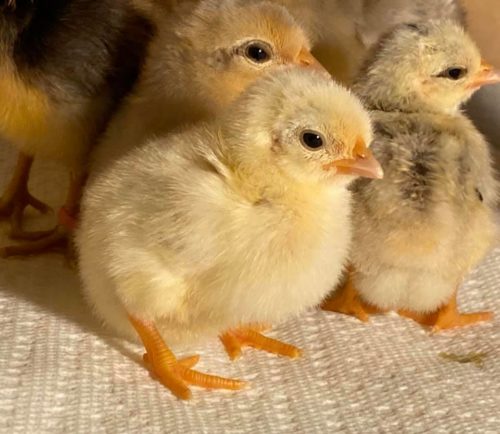
One customer's story of too much chick grit....
Too much chick grit can be harmful to your newly delivered flock. One of our customers, Cindy (not her real name) excitedly picked up her peeping balls of fluff from the post office. She quickly took them home and settled them in their new brooder. They all looked so healthy and happy as they excitedly peeped and pecked their way around.
Everything seemed to be going well, but by Saturday morning, one of her chicks had died.
What happened?
On Friday morning, one of her chicks showed signs of what she thought looked like pasty butt. It's right side also appeared swollen. The chick was perfectly symmetrical when it arrived, but it was starting to look larger and out-of-balance on its right side.

After contacting My Pet Chicken, Cindy learned that baby chicks' crops often enlarge after they eat. The crop swells when it fills with food. It then returns to normal size as the feed is moved to the gizzard for further processing. Based on this information, she wasn't too concerned about the swollen crop…at least not at first.
Cindy also learned tips for helping her chick with pasty butt and what later appeared to be a prolapsed vent, and she began to heroically use that information to provide care for her beloved chick.
A heroic effort
Cindy soaked the chick's vent area in warm water to relax it in an attempt to facilitate passing the obstruction. She gently dried her off with a hairdryer on the lowest setting so she didn't get chilled. Cindy then began to carefully massage the baby chick. Interestingly, after a few attentive rubs, a little chick grit came out. Cindy kept tenderly massaging to see if the chick might have more grit obstructing its vent. After massaging a little more, a LOT of grit came out piece by piece, followed by some poop.

That seemed to do the trick! The chick perked up and became more chirpy and alert. Her vent was still swollen and her right side was still larger than the left, but it looked like--hopefully!--the little bird was out of the woods. Cindy checked on her chicks in the middle of the night on Saturday. She gave the chick a little olive oil for the potentially impacted crop. She also observed that the chick had still not eaten or drunk anything.
When the sun came up, Cindy checked on the chick again. Unfortunately, she was laying down struggling to breathe, and by 8:30 am, the chick had died.
With tears in her eyes, Cindy emailed My Pet Chicken to report the loss.
What went wrong?
Cindy was valiant in her effort to nurse this baby chick, but unfortunately, her efforts were not enough. It is impossible to know all the factors that might have played a role in the loss of the chick, but it appears that the most important contributing factor was the ingesting of too much chick grit. Sometimes, really young chicks may mistake grit for feed and consume too much, thinking that it's actually food. When this happens, it can cause the crop to become impacted and keep the chick from being able to digest and pass feed normally. That seems to be what happened with Cindy's chick.
Thankfully, this situation is preventable!
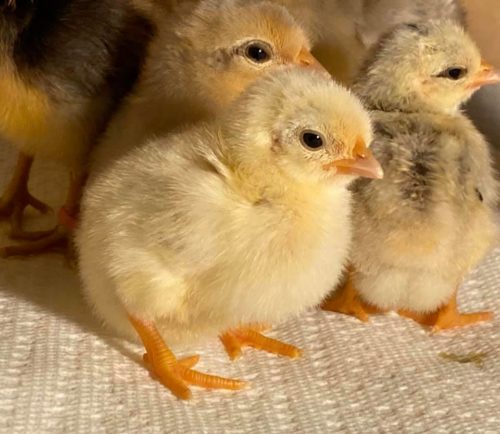
Tips to keep your chicks from eating too much chick grit:
- If chicks are eating only finely-milled feed, they do not usually need chick grit. Baby chick feed is water-soluble, so the chicks don't need grit to help them digest it. If your chicks are only eating chick feed and never leave the brooder, then it is probably not necessary to give them grit. If your chicks are eating anything other than chick feed, including treats, plants, bugs, or worms, they will need chick grit.
- Chicks may ingest small pieces of bedding. If this happens, they will need some grit to help digest it. It's a good idea to mix 1-2 tablespoons of chick grit into 1 quart of feed. This allows chicks to ingest a little grit--but not too much--while they eat their feed. Another option would be to sprinkle a small amount of chick grit (a tablespoon or so, depending on the size of your brood) in a dish once a day and let the chicks enjoy. Be sure to watch them to make sure no one chick is eating too much grit.
Keep your new chicks safe
Over-consumption of chick grit contributes to untold numbers of chick losses each year. By following these suggestions, you can help keep your chicks safe during those first few days while they are figuring out what "food" is.
We hope this information will help save some chicks' lives and allow more people to enjoy the fun of raising baby chicks! A special thank you to Cindy (not her real name) for letting us share her story in order to help provide more education about baby chick care.
For more information about chick care, visit our free Chicken Care Guide.
